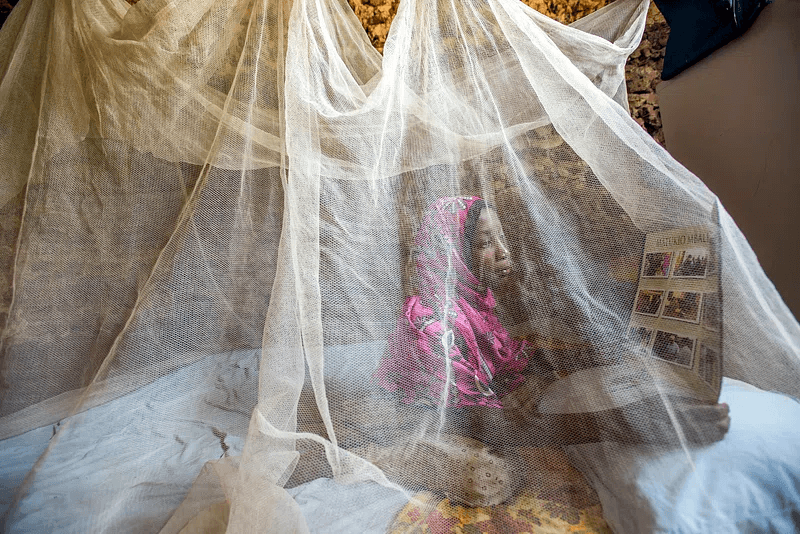
Malaria is a disease caused by mosquitos, specifically female Anopheles gambiae, who have a parasite. Symptoms include fever, chills, and other flu like symptoms. The infections mainly occur in children in sub-Saharan Africa and when left untreated can result in severe complications and death. Scientists have began developing ways to genetically edit the mosquitoes with the parasite causing the disease to spread. Scientists Andrea Smidler, James Pai, and Reema Apte created a technique called Ifegenia which stands for "inherited female elimination by genetically encoded nucleases to interrupt alleles". The technique uses CRISPR genetic editing technology to disrupt a gene known as femaleless (fle) that controls sexual development in A. gambiae mosquitoes. It specifically has a Cas9 nuclease, the CRISPR technology makes cuts and uses a guide RNA to insert the gene. The genetically modified mosquitoes separately express Cas9 and the fle-targeting guide RNA. The offspring of these genetically modified flies was males only, all of the femaled were killed. The male offspring inherit the Ifgenia gene however the genetic edit only affects females reproduction. This genetic editing is a great start to reducing Malaria in sub-Saharan populations when other preventions techniques such as vaccines.
No comments:
Post a Comment